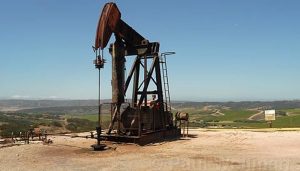Last summer I wrote a blog about the carbon emissions of billionaires. This week an interesting article was published in The Conversation where two economic anthropologists from Indiana University looked in more detail at the individual carbon footprints of twenty of the richest people on the planet. Their findings reveal that the individual carbon footprints varied from Michel Bloomberg’s 1,782 tons to the staggering annual emissions of Roman Abramovich at 31,199 tons. In my blog I’d estimated the carbon emissions of all, or nearly all, billionaires to be over 1,000 tons. I’d also implied that their average would be even higher than this, and some individuals would be almost unimaginably high emitters. This new data backs up my previous blog.
Global average carbon emissions are currently something around 5 tons per person. Many people have miniscule carbon emissions, of perhaps a few kilograms or even just a few grams. The vast majority of such people are small scale African or Asian subsistence farmers. Some people who are doing ecologically regenerative farming systems will have negative carbon footprints, meaning that the carbon they are sequestering in the soil is more than that they emit in other ways. I follow lots of African climate activists of Twitter and many of them are doing amazing projects setting up tree nurseries, clearing up plastic pollution, educating about ecology and setting up ecologically restorative farming systems.
Meanwhile BBC Radio 4 is broadcasting Bill Gates’ book ‘How to Avoid a Climate Disaster’. It is a pretty awful book, concentrating entirely on technological innovation and ignoring the vital aspects of social innovation and climate justice. Last week I reviewed Jason Hickel’s book which focuses on the absolute need to move to a post capitalist economy to combat the climate and ecological emergency. I could recommend dozens of other books, maybe hundreds, that are much better than Bill Gates’ one. So why are the BBC reading his one? Is it because he is a billionaire, and the BBC really has become a mouthpiece for the greedy global elite? As the figures published in The Conversation reveal Bill Gates’ personal carbon emissions are 7,408 tons. Rather than write a book his time might have been better spent looking at his own carbon footprint.
Last month I posted a blog about the people who have inspired me over the last year, and I named three young women activists from Africa who all are doing great work on climate, ecological and social justice: Patricia Kombo from Kenya, Kaossara Sani from Togo and Oladosu Adenike from the Lake Chad Region. I could have added many more names to this list. Africa is bursting with great climate activists. Why does the BBC focus on Bill Gates? Is it because he is a rich white man from America and not a poor black women from Africa?
There are many great books and ideas about how to adequately address the climate and ecological emergency. Most call for some pretty radical changes implying huge social, economic and political change as well as technological change. Why do none of them get coverage on the BBC? Is it because the BBC has become too deeply embedded in the present social, economic and political system that they cannot contemplate any challenge to this system, even when it is glaringly obvious that this needs to happen to avert climate, ecological and social breakdown?



